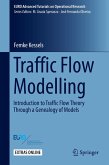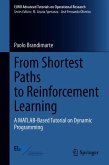Revenue management (RM) is one of the most successful applications in Operations Research. The RM has grown from its application with a handful of major airlines to its status today as a mainstream business practice with a growing list of industry users from Walt Disney Resorts to National Car Rental and a supporting industry of software and consulting firms. Over this same time period, academic and industry research on RM methodology has also grown rapidly. While the number of published papers on RM has increased in dramatic measures, there is still no book that comprehensively covers the field of RM. Such a book is a pressing need because:
Much of the "Institutional" knowledge of revenue management is relatively inaccessible to those outside the profession.
It is difficult to find the fundamental and seminal ideas in the literature because these ideas either do not appear in published journals or appear in relatively obscure sources.
The terminology, concepts, and notation need to be standardized, so the general reader can understand and apply the contributions in the RM literature.
The gap between practitioners and academics in the field needs to be closed.
THE THEORY AND PRACTICE OF REVENUE MANAGEMENT is a book that will meet these needs. It comprehensively covers theory and practice of the entire field, including both quantity and price-based RM, as well as significant coverage of supporting topics such as forecasting and economics. The authors believe such a comprehensive approach is necessary to fully understand the subject. A central objective of the book is to unify the various forms of RM and to link them closely to each other and to the supporting fields of statistics and economics. Nevertheless, the topics and coverage do reflect choices about what is important to understand RM. Hence, the book's purpose is to provide a comprehensive, accessible synthesis of thestate-of-the-art in Revenue Management.
The audience for THE THEORY AND PRACTICE OF REVENUE MANAGEMENT is threefold: (1) It will be of use to the academic researchers now working in RM-related topics, as well as those who work in related areas (such as supply chain management), who seek a single-source accessible overview of the theory and practice components of RM. (2) For practitioners the book will serve as a single-source reference for the theory and application issues involved in RM. (3) Finally, there are a growing number of university and seminar courses specially focused on RM for which the book can serve as a core text.
Much of the "Institutional" knowledge of revenue management is relatively inaccessible to those outside the profession.
It is difficult to find the fundamental and seminal ideas in the literature because these ideas either do not appear in published journals or appear in relatively obscure sources.
The terminology, concepts, and notation need to be standardized, so the general reader can understand and apply the contributions in the RM literature.
The gap between practitioners and academics in the field needs to be closed.
THE THEORY AND PRACTICE OF REVENUE MANAGEMENT is a book that will meet these needs. It comprehensively covers theory and practice of the entire field, including both quantity and price-based RM, as well as significant coverage of supporting topics such as forecasting and economics. The authors believe such a comprehensive approach is necessary to fully understand the subject. A central objective of the book is to unify the various forms of RM and to link them closely to each other and to the supporting fields of statistics and economics. Nevertheless, the topics and coverage do reflect choices about what is important to understand RM. Hence, the book's purpose is to provide a comprehensive, accessible synthesis of thestate-of-the-art in Revenue Management.
The audience for THE THEORY AND PRACTICE OF REVENUE MANAGEMENT is threefold: (1) It will be of use to the academic researchers now working in RM-related topics, as well as those who work in related areas (such as supply chain management), who seek a single-source accessible overview of the theory and practice components of RM. (2) For practitioners the book will serve as a single-source reference for the theory and application issues involved in RM. (3) Finally, there are a growing number of university and seminar courses specially focused on RM for which the book can serve as a core text.
Dieser Download kann aus rechtlichen Gründen nur mit Rechnungsadresse in A, B, BG, CY, CZ, D, DK, EW, E, FIN, F, GR, HR, H, IRL, I, LT, L, LR, M, NL, PL, P, R, S, SLO, SK ausgeliefert werden.
"Simply put this is an outstanding book. It is the first book to fully articulate the various ways operations research may be applied to revenue management problems. As such it is, in my opinion, one of the most important books in applied OR to appear in the last decade. The first Chapter gives one of the most succinct yet satisfying reviews of revenue management I have seen anywhere. This is followed in Chapters 2, 3 and 4 with nice treatments of resource allocation, capacity, and overbooking to complete Part I.
Part II covers, in Chapters 5 and 6, both dynamic pricing and auctions. If there is a fault with the book, it is the fact that the role of variational methods and dynamic game theory in pricing is not stressed. However, that material is rather advanced and in its infancy with regard to revenue management; so excluding it makes a great deal of editorial sense.
Part III could be titled "Applications", and it has illustrative examples for almost every type of decision environment in which revenue management has been studied and/or practiced. In closing I reiterate that this is an outstanding book and a must have reference for anyone doing research on revenue management."
Terry L. Friesz, Harold & Inge Marcus Chaired Prof.
Pennsylvania State University
To be published in NETWORKS AND SPATIAL ECONOMICS, Vol. 4:4 in December 2004
Part II covers, in Chapters 5 and 6, both dynamic pricing and auctions. If there is a fault with the book, it is the fact that the role of variational methods and dynamic game theory in pricing is not stressed. However, that material is rather advanced and in its infancy with regard to revenue management; so excluding it makes a great deal of editorial sense.
Part III could be titled "Applications", and it has illustrative examples for almost every type of decision environment in which revenue management has been studied and/or practiced. In closing I reiterate that this is an outstanding book and a must have reference for anyone doing research on revenue management."
Terry L. Friesz, Harold & Inge Marcus Chaired Prof.
Pennsylvania State University
To be published in NETWORKS AND SPATIAL ECONOMICS, Vol. 4:4 in December 2004









